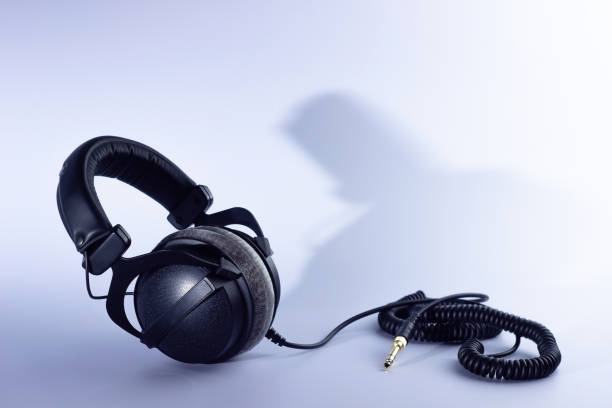In the world of headphones, several brands dominate the market with their innovation, sound quality, and design. Among these, Sennheiser is a standout, known for its high-fidelity audio equipment that caters to both casual listeners and professionals. However, other brands like Audio-Technica, and beyerdynamic are also key players. In this blog post, we'll compare Sennheiser to these leading headphone brands, exploring what sets it apart in terms of sound quality, build, technology, and target audience.
1. Sound Quality: A Heritage of Precision
Sennheiser
Sennheiser's legacy in sound engineering dates back to 1945, and since then, the brand has been committed to delivering precise and balanced sound. Their flagship models, such as the HD 800 S and Momentum Wireless, are revered for their wide soundstage, clear highs, and controlled bass. Sennheiser headphones are often praised for delivering a "natural" or "neutral" sound signature, which is particularly valued by audiophiles and professionals in music production.
- Pros: Natural sound signature, wide soundstage, precise imaging.
- Cons: Some listeners may find the bass response less pronounced compared to bass-heavy brands like Sony.
Audio-Technica
Audio-Technica is another brand popular with audiophiles, known for offering a slightly warmer sound profile with more bass emphasis than Sennheiser. The ATH-M50x is a well-loved model for studio use, offering punchy lows and clear mids, though it may lack the expansive soundstage that Sennheiser provides.
- Pros: Strong bass, slightly warmer sound, good for casual listening.
- Cons: Narrower soundstage, can be less neutral in comparison.
Beyerdynamic
Known for their detailed and analytical sound, beyerdynamic’s DT 1990 Pro and DT 770 Pro are staples in studios around the world. Their sound is often compared to Sennheiser's, but beyerdynamic tends to emphasize the high frequencies more, making their headphones slightly brighter.
- Pros: Detailed, bright sound, highly durable.
- Cons: High frequencies can be fatiguing over time, less portable.
Key Takeaway:
Sennheiser is known for delivering one of the most neutral and balanced sound profiles in the market, making it a preferred choice for professional use and audiophiles. Brands like Audio-Technica and beyerdynamic focus on slightly warmer and more analytical signatures.
2. Build Quality and Design: Durability Meets Comfort
Sennheiser
Sennheiser headphones typically offer a sturdy yet sleek design, built from premium materials like high-grade plastics, metals, and comfortable padding. The Momentum series, in particular, is noted for its stylish design, often incorporating leather and steel. Sennheiser headphones are built to last, and many models feature replaceable parts, extending their lifespan.
- Pros: Premium materials, durable, replaceable parts.
- Cons: Some models can feel bulky for portable use.
Audio-Technica
Audio-Technica headphones are known for their durability, especially models like the ATH-M50x. While they are sturdy, they may not match the premium feel of Sennheiser's high-end models. The design is often more utilitarian, focusing on functionality rather than aesthetics.
- Pros: Durable and functional.
- Cons: Less focus on aesthetics, can feel plasticky.
beyerdynamic
beyerdynamic headphones are often bulkier than other brands but are built to withstand heavy use in studio settings. Their models typically feature robust metal frames and plush ear padding, ensuring durability and comfort, though they are less portable due to their size.
- Pros: Built for durability, highly comfortable in studio settings.
- Cons: Bulky, not ideal for portable use.
Key Takeaway:
Sennheiser strikes a fine balance between style, durability, and comfort, making their headphones a great all-rounder for both professional and personal use. Brands like Audio-Technica and beyerdynamic focus more on utilitarian and durable designs, while Bose and Sony prioritize comfort and portability.
3. Technology and Features: Innovation at the Forefront
Sennheiser
Sennheiser has consistently been at the cutting edge of headphone technology. Their models often include high-end features like aptX Low Latency and AAC support, which provide better sound quality for wireless users. The Momentum True Wireless 3 earbuds, for example, come with customizable sound via an app and advanced noise cancellation features. However, compared to Sennheiser is slightly slower in integrating smart features like touch controls and voice assistants.
- Pros: High-fidelity audio codecs, customizable sound, advanced noise cancellation.
- Cons: Fewer smart features compared to competitors.
Audio-Technica
Audio-Technica focuses more on sound quality and less on additional smart features. Some of their wireless models offer basic Bluetooth capabilities, but the brand lacks the extensive feature set of Sennheiser.
- Pros: Focus on sound quality.
- Cons: Lack of advanced features like noise cancellation or smart assistants.
beyerdynamic
beyerdynamic keeps technology simple, often forgoing modern smart features in favor of superior sound engineering. They focus primarily on wired headphones, though their wireless models offer high-quality sound but lack many of the smart features found in brands like Sony and Bose.
- Pros: Focus on sound engineering.
- Cons: Lack of modern smart features and noise cancellation.
Key Takeaway:
When it comes to technology, Sennheiser offers a well-rounded package with high-quality sound codecs, customizable sound, and solid noise cancellation.
Conclusion
Sennheiser distinguishes itself with its precise, neutral sound signature, premium build quality, and focus on professional-grade audio. While brands like beyerdynamic and Audio-Technica focus more on specific audio characteristics, Sennheiser remains a top choice for those who prioritize balanced sound and long-term durability. Whether you are a casual listener or a professional audio engineer, Sennheiser offers something unique that sets it apart from the competition.





Comments